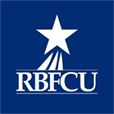Quick Saving Practices Made Easy
Taking a carpe diem approach to savings may provide instant gratification when you see that must-have pair of shoes, however, when you need funds for bigger purchases, you may wish you had put some saving procedures in place a little sooner.

By setting basic guidelines for yourself, you’ll be more likely to achieve financial security and have a little extra in your pocket for the holiday season.
1. Pay yourself first. Transferring a set amount from checking to savings after each paycheck will help you to establish the saving habit. With online account management, making a transfer takes less than a minute and there’s no need to fill out a transfer slip or write yourself a check. By setting an auto debit or calendar reminder biweekly, or even once a month, you can easily and painlessly build your savings with each paycheck.
2. Save 10 percent of your paycheck. While the general rule of thumb is to save about 10 percent of each paycheck, look at your budget and select an amount that seems right for you. If 10 percent seems too high, try 5 percent and work your way up by increasing one percent each year until you reach your desired savings percentage.
3. Analyze your spending. It seems so easy, but actually sitting down to analyze your spending can be hard, time-consuming work. When it’s done, you’ll be forever thankful. You can learn so much about yourself by tracking your spending. Maybe you’re eating out too much, or maybe you weren’t fully aware at how much money you really have to spend once your bills have all gone through. Knowing exactly how your bank account churns can truly make a difference in how you spend and save.
4. Cut the fat. Not popping in to Starbucks every morning or cutting back on online shopping, may seem like the end of the world at first, but try it — just for a few weeks and see the difference in money spent. It will most likely leave a nice little cushion in your account that you can proudly transfer to your savings account.
5. Reward yourself. Yes, it’s good practice to try and live without the extra expenses, but let’s be honest — it’s important to reward ourselves. Setting measurable goals and rewarding yourself when you reach them is a fantastic idea. Just make sure your reward is reasonable and doesn’t negate or outstrip your savings goal.
Want to figure out how long it will take to reach your savings goals? Use the tools on our Calculators page.



